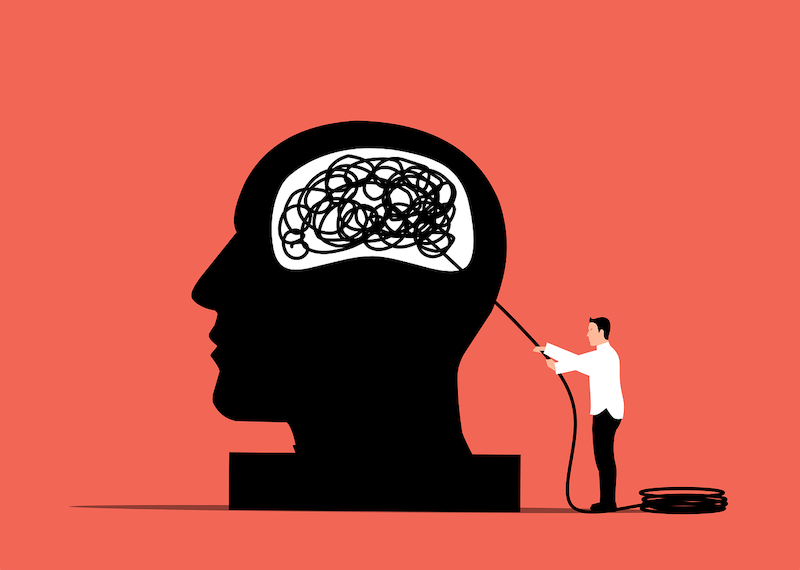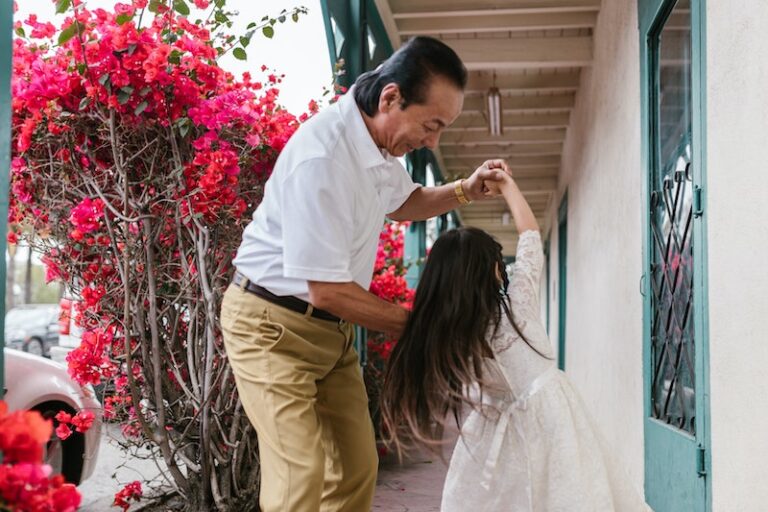
The Scarcity Mentality Among Musicians
Why Collaboration is Key to Success
Driving growth in the music industry
Collaboration as a Transformative Factor in the Digital Era
Musicians are often perceived as individuals with an unbridled passion for their craft, driven by a singular focus: to create and share their music with the world. However, this romanticized view of the music industry is often marred by a harsh reality: the scarcity mentality that runs rampant among artists.
This mindset, based on the fear that “there isn’t enough to go around” – whether it’s money, fame, or recognition – is limiting the creative and professional potential of countless talented musicians. In an ecosystem that seems increasingly competitive and saturated, many artists lock themselves into a cycle of protection and isolation, perceiving their colleagues as competitors rather than potential collaborators.
What you’ll discover in this article:
- How to identify if you’re operating from a scarcity mindset
- The proven benefits of musical collaboration
- Practical strategies for developing an abundance mindset
- Inspiring stories of musicians who transformed their careers through collaboration
Today we’ll explore how an abundance mindset and strategic collaboration can transform your music career, opening doors to new creative and professional opportunities that you may not have even imagined.
Understanding the Scarcity Mentality in the Music Industry
The scarcity mentality is a belief system that stems from the fear that there isn’t enough to go around, be it money, opportunities, or recognition. In the music industry, this mindset is reflected in behaviors such as:
Excessive Protection
Safeguarding ideas, contacts, or techniques for fear that others will “steal” them and gain an advantage
Negativity Towards Others’ Success
Seeing other musicians’ success as a threat or confirmation that “there are fewer opportunities for me”
Creative Isolation
Reluctance to collaborate or share creative spaces for fear of comparison or “diluting” artistic identity
Rejection of New Ideas
Resistance to change and exploring new musical directions for fear of failure or rejection
Factors That Feed the Scarcity Mentality

Competitive pressure in the music industry can fuel a scarcity mentality among artists
Several factors contribute to perpetuating the scarcity mentality in the music industry:
- The “limited pie” myth: The belief that only a limited number of musicians can succeed, and that one’s success necessarily comes at the expense of another.
- The cult of individualism: The industry tends to celebrate narratives of the “solitary genius” or “self-made star,” minimizing the role of community and collaboration.
- Previous experiences of exploitation: Many musicians have had bad collaborative experiences where they felt taken advantage of or did not receive proper credit.
- Artistic insecurity: Impostor syndrome and doubts about one’s own talent can lead to protectionist behaviors.
- Outdated economic models: Industry structures that continue to operate under paradigms of fierce competition rather than collaborative models.
The Paradox of the Scarcity Mentality
The irony of the scarcity mentality is that, in trying to protect oneself from perceived scarcity, musicians end up creating precisely what they fear:
- Fewer meaningful connections in the industry
- Reduced opportunities for learning and growth
- Limitation of potential reach for their music
- Creative stagnation due to lack of new stimuli
Abundance Mindset: The Transformative Alternative
In contrast, the abundance mindset is based on the belief that there are enough resources, opportunities, and success for everyone. This perspective sees the music industry not as a space of competition for limited resources, but as a constantly expanding ecosystem with potential for collective growth.
“The abundance mindset recognizes that there is room for everyone to shine, and that the success of other musicians does not diminish your own chances of success. In fact, the growth of the musical ecosystem benefits all its participants.”
As Stephen Covey, author of “The 7 Habits of Highly Effective People,” defines it, the abundance mindset is “a concept in which a person believes there are enough resources and successes to share with others.” This approach doesn’t ignore market realities, but addresses them from a perspective of possibilities rather than limitations.
5 Key Benefits of Musical Collaboration
Musical collaboration is not just an enriching creative practice, but a smart professional strategy that can significantly transform your career. Let’s look at the most important benefits:
Expansion of Skills and Knowledge
Working with other musicians exposes you to different techniques, creative approaches, and specific knowledge that you probably wouldn’t get on your own. This accelerates your professional development and enriches your arsenal of creative tools.
Exponential Audience Growth
One of the most tangible advantages of collaboration is access to new audiences. Each collaborator brings their own followers, which can significantly multiply your reach and visibility in the industry.
Creative Stimulus and Overcoming Blocks
Exchanging ideas with other musicians can unlock new creative directions and help you overcome artistic stagnation. Collaboration introduces unexpected elements that can completely revitalize your creative process.
Access to Resources and Opportunities
Collaboration opens doors to resources that might be out of reach as an independent artist: better equipped studios, connections with industry professionals, opportunities to perform in new spaces, and even possibilities for shared funding for more ambitious projects.
Greater Resilience and Emotional Support
A music career can be emotionally challenging. Having a network of collaborators creates a support system that can help you navigate difficult times, share both successes and failures, and maintain long-term motivation.
Common obstacle: “But I’ll lose my artistic identity if I collaborate too much”
This is a valid concern that many musicians share. The key is to choose strategic collaborations that complement your artistic vision rather than diluting it. The best collaborations expand your identity as an artist rather than replacing it.
7 Strategies for Cultivating an Abundance Mindset
Transforming your mindset from scarcity to abundance doesn’t happen overnight, but with conscious practice and specific strategies, you can reorient your perspective and open new paths for your music career.
1. Cultivate Inner Confidence
Inner confidence is about developing an internal reliance upon oneself. Trusting yourself and your own opinions over others (not blindly).
Practical exercise:
Start by trusting your “gut instincts.” You know how you sometimes have the gut instinct that someone is lying to you, or you can hear the words they’re not saying? Trust that. Practice tuning in with yourself and see if your gut instinct was right! With practice, you’ll develop a stronger relationship with your intuition.
2. Adopt a Growth vs. Fixed Mindset
A fixed mindset is one in which one’s qualities are innate and unchangeable over time. If you’re not good at something, you typically think you’ll never be good at it. On the other hand, a growth mindset is one in which one’s qualities can be developed with practice and effort.
Steps to implement:
- Keep yourself open to learning and growing
- Push yourself regularly
- Take a class, learn something new related to your music
- Remember that we are always evolving as artists
3. Liberation from the Old Paradigm
The music industry tells us who we should be as artists. Young, pretty, talented, and malleable. Yes, they want young artists, because sex and beauty sell. And they want to groom you to sell.
New perspective:
But that is the “old paradigm”. A new music industry is being born where artists are building their brands and owning their own content outright with no need for big labels. It’s time for liberation, creative control, ownership, and abundance to return to artists.
4. Setting Personal Goals and Convictions
When you can’t seem to make a change in life, the key is often held in the submerged waters of your subconscious mind. There’s a science to it… The path to success has long been paved by intention, visualization, and the power of belief.
Manifestation exercise:
Set personal goals for the life you want to create for yourself. Say it out loud every day. Your mind hears what you are saying. This helps to manifest it.
5. Practice Self-care
Practicing self-care is one of the ways to keep your vibration high and continue to attract success and abundance. When we don’t take care of ourselves, our frequency drops and we fall into lower vibrational negative thinking and negative cycles. This kind of energy pushes away success.
Ideas to implement:
- Go for a walk, listen to music, lie on the grass in the sun
- Soak in a bath with some epsom salts
- Do things that ground you
- Activities that make you feel good in your body
6. Cultivate a Positive Self-image
Developing a positive image of yourself is a great step toward moving out of lower vibrations and into a life that feels good. If you struggle with your self-image, you are not alone. And it’s not your fault. We’ve been programmed since birth with a narrative of what we should do, should be, should look like, should behave like… that is often nothing close to who we really are.
Implementation strategy:
Spend some time getting to know yourself, practicing compassion for yourself. Work on eliminating false ideas and explore what makes you happy and watch the magic unfold in your life. Be you and be true to yourself.
7. Become a Good “Receiver”
We have been taught by culture that it is better to give to others than ourselves. It is interesting that Webster’s definition of love says “a strong feeling of affection or concern for another person” with no mention of love towards oneself.
New approach:
Acting more loving towards oneself helps you to receive the success and abundance trying to make its way to you. Stay strong in this practice.
How do I know if I’m progressing towards an abundance mindset?
Here are some indicators that you’re beginning to shift your mindset:
- You genuinely feel happy about other musicians’ success
- You share resources and information with colleagues without fear
- You actively seek collaboration opportunities
- You find yourself thinking in terms of possibilities rather than limitations
- You’ve started to experience new “coincidental” opportunities
Success Stories: Collaboration in Action
Musical collaborations have generated some of the greatest hits in music history and have transformed entire careers. Let’s look at some inspiring cases that demonstrate the power of abundance mindset and collaboration:
Mark’s Story: From Stagnant Soloist to Collective Founder
Mark was an electronic music producer who spent years struggling to stand out in the saturated local scene. After years of frustrations trying to “make it alone,” he decided to change his approach.
The Change:
Instead of seeing other local producers as competition, Mark began organizing monthly collaborative sessions in his small home studio. What started as informal meetings evolved into an official producers’ collective that shared resources, knowledge, and contacts.
The Result:
Three years later, the collective has launched an independent label, organizes sold-out events, and has secured numerous licenses for advertising and media. Mark now generates more income and has greater creative satisfaction than when he worked solo.
Carla’s Leap: Cross-Cultural Collaboration
Carla was a folk singer who felt her career had stalled after releasing two albums with moderate reception. Despite her vocal talent, she couldn’t distinguish herself in a saturated market.
The Abundance Strategy:
Instead of competing in the same space, Carla began collaborating with musicians from completely different genres and diverse cultural backgrounds. She combined her folk style with elements of electronic music, Latin American rhythms, and jazz structures.
The Transformation:
Her unique resulting sound caught the attention of international media and opened doors for tours at world music festivals. The collaborations didn’t dilute her artistic identity—they amplified and differentiated it, creating a distinctive niche for her music.
Daniel’s Support Network: The Power of the Group
Daniel, a composer and arranger, spent most of his professional time alone in his studio. Although technically successful, he felt increasingly isolated and experienced frequent creative blocks.
The Initiative:
Daniel formed a support group with five other music professionals who faced similar challenges. They met virtually every two weeks to share challenges, celebrate victories, and offer feedback on ongoing projects.
The Impact:
This simple change not only improved his mental wellbeing but led to multiple professional collaborations between group members. The emotional and creative support from his colleagues helped Daniel secure his first film music contract, something he had always considered beyond his reach.
Key Lessons from these Stories
- Collaboration creates opportunities that didn’t previously exist – It’s not about dividing an existing pie, but creating a completely new and larger one.
- Creative ecosystems outperform solitary geniuses – The myth of the isolated artist who succeeds through sheer willpower rarely reflects how sustainable success actually works.
- Differentiation through collaboration – Paradoxically, strategically collaborating can help you find your unique voice faster than working in isolation.
Would you like to share your own transformation story through collaboration?
Share your experience in the comments or contact us to be featured in a future update of this article.
We’d love to hear how collaboration has transformed your music career!Resources to Boost Your Collaborative Career
To help you implement the concepts discussed in this article, we’ve compiled a series of tools, platforms, and resources that can facilitate your transition to a more collaborative and abundant music career:
Music Collaboration Platforms
Splice
Cloud collaboration platform that allows producers to share and work on music projects together, with access to a vast library of samples.
Kompoz
Global community where musicians of all levels can find collaborators for their projects, regardless of genre or geographic location.
BandLab
Cloud-based DAW that facilitates real-time collaboration between musicians and offers social tools to share and promote your music.
Vampr
Often described as “Tinder for musicians,” this app connects music professionals based on their skills, influences, and location.
Resources for Developing an Abundance Mindset
Recommended Books
- “The 7 Habits of Highly Effective People” by Stephen R. Covey – Explores in depth the concept of abundance vs. scarcity mindset.
- “Mindset: The New Psychology of Success” by Carol S. Dweck – Fundamental to understanding the difference between fixed and growth mindsets.
- “The Musician’s Way” by Gerald Klickstein – Offers strategies for musicians seeking to develop sustainable and satisfying careers.
Practical Exercises
-
Musical Gratitude Journal
Spend five minutes daily writing down three things you’re grateful for in your music career, no matter how small. This exercise recalibrates your mind to detect opportunities rather than shortages.
-
Collaboration Network Analysis
Draw a map of your current professional network and mark potential collaborative connections you haven’t explored. Commit to contacting at least one new person each week.
-
Musical Support Challenge
Commit to actively promoting the work of other musicians (especially those in your niche) on your social media for a full month, without expecting anything in return.
Communities and Professional Networks
Joining musician communities can provide ongoing support to maintain an abundance mindset. Consider joining:
- Professional associations specific to your genre or instrument
- Facebook groups specialized in musical collaboration
- Local meetups for musicians in your city
- Discord servers dedicated to specific genres or music production
The Path Forward
Remember that transforming your mindset is a process, not an event. You’ll be more effective if you implement these changes gradually, celebrating small victories along the way.
An abundance mindset and collaboration have proven to be powerful tools not just for surviving, but for thriving in the changing music industry. Just as in a natural ecosystem, diversity and interconnection create resilience and stimulate growth.
Sustainable success is rarely a solitary journey. Are you ready to take the next step?






